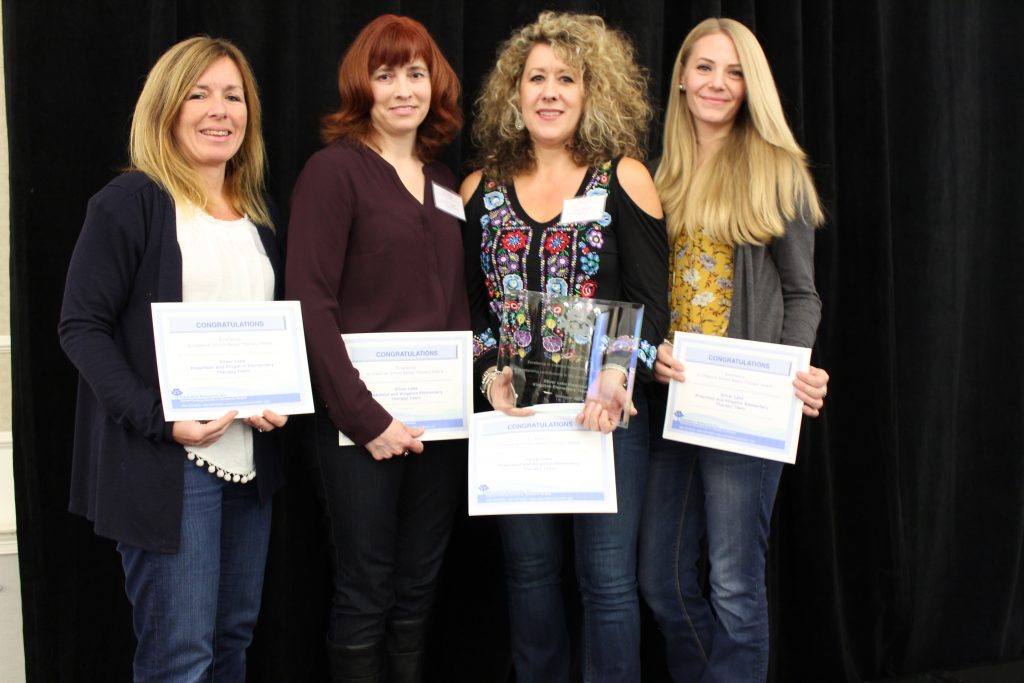We are extremely happy to pass on this invitation to take part in a survey from ERI faculty member Christina Finn MS OTR/L:
We are extremely happy to pass on this invitation to take part in a survey from ERI faculty member Christina Finn MS OTR/L:
The survey examines the knowledge and confidence levels of occupational therapists regarding the assessment and treatment of patients with persistent post concussive symptoms. An Examination of Occupational Therapists’ Perceived Levels of Confidence and Practice Trends in the Management of Post-Concussion Syndrome The purposes of this study are:
to examine occupational therapists’ perceived confidence and knowledge level in the treatment and assessment of patients with post- concussion syndrome
to examine the different types of assessments and treatments being utilized by occupational therapists for post-concussion syndrome
to examine the frequency and types of of referrals to occupational therapy for patients with post-concussion syndrome.
Please Click here to take part in this short survey.
This self-administered survey will take approximately 15 minutes to complete.
Thank you in advance for your participation in this research study.
Sincerely,
Christina Finn MS OTR/L cfinn02@nyit.ed
This online series provides a collaborative approach to support clients/patients diagnosed with post concussion syndrome and addresses many issues that each discipline has to deal with collaboratively.
CLICK HERE FOR MORE INFORMATION
A venue for therapists to discuss any clinical challenges or tips with other colleagues.
We have received overwhelming feedback asking for a place to pose clinical questions, receive advice from other therapists and discuss the latest advancements related to post concussion syndrome.
We are creating a forum to serve these needs.

From Education Resources
Wishing our Community of Therapists
Peace, Happiness and Joy for the upcoming year
We would like to offer a $50 discount towards a course registration fee.
Register now through December 29th 2017 – EXTENDED TO JANUARY 3rd 2018
Apply code: HOLIDAYS2017
Let ERI help you fulfill your professional development and continuing education requirements with our comprehensive selection of dynamic courses in 2018. Improve outcomes – by improving patient care.
Including many NEW courses and distinguished faculty members
Not to be used in combination with other discounts or course credits. Non-Transferable. Only one discount may be used per conference. Must be applied at time of registration, not for conferences previously registered for. Not for online courses, or one day courses. Exclusions may apply. (cannot be applied toward registration for “When Children Won’t Eat: Picky Eaters vs. Problem Feeders. Assessment and Treatment Using the SOS Approach to Feeding”)
You can register online, call the office or fax in your registration.
Just mention the code!
Please call, email or visit our website with any questions
Please click here for our full listing of courses
Thank you
Mandy
www.educationresourcesinc.com 508-359-6533 ● 800-487-6530
]]> 
We were thrilled to launch this award to recognize an individual/team who has demonstrated an extraordinary commitment and has made outstanding contributions to the practice of school based therapy by enriching the lives of students through creative solutions.
Our awardee team has been described as meeting the most challenging of student needs in unconventional and unique ways that engage teachers, staff and families collaboratively.
The inaugural award goes to the therapy team of Leesa Bleicken, Eileen Beaulieu, Sandy Doogue and Kellie Theobald for their creative multidisciplinary approach to servicing their growing medically complex population at the Silver Lake Integrated Preschool and Kingston Elementary School, Massachusetts. They stood out among so many wonderful nominees.
In their nomination papers, the team was cited for several creative service delivery programs including their co-treatment paradigm that incorporated weekly take home sheets outlining the sessions using visuals, motor learning considerations, sensory exploration, music, vocabulary words, sign language, total communication methods and parent resources. Parent engagement and communication grew quickly.
We were honored to meet such a wonderful passionate group of therapists and present them with the award at ERI’s Annual Therapies in the School Conference November 16-17, 2017 – Framingham, MA.
Congratulations!
Thank you to all of you who submitted nominations. There were so many worthy candidates.
]]> 
We were excited to join our professional partners, the National Association of Neonatal Therapists (NANT) in celebrating neonatal therapists everywhere during International Neonatal Therapist Week
Members of NANT were offered entry into a drawing to win a 2 day ERI course of their choice.
We received a tremendous response and would like to congratulate Angela, an OT from Cleveland OH, as the winner of our randomized drawing.
Celebrating 30 years of life-changing learning, ERI provides evidence-based, clinically relevant CEU courses for neonatal occupational therapists, physical therapists and speech language pathologists, Dieticians and Nurses working in the NICU, and beyond. Learn skills you’ll use right away, through hands-on learning. It’s about improving outcomes by improving patient care. Our cutting edge courses are taught by distinguished internationally renowned faculty who are leaders in their field.
]]>
 Nechama Karmen[/caption]
Nechama Karmen[/caption]
We are thrilled to announce multiple opportunities to hear our new faculty member Nechama Karman speak:
If you Can’t Breathe, You Can’t Function – Introductory Course Plus TWO days of Intensive LAB
December 1-3, 2017 – Wilkes Barre Township, PA
June 22-24, 2018 – San Antonio, TX
September 14-16, 2018 – Alexandria, VA
Annual Therapies in the School
November 16-17, 2017 – Framingham, MA
Nechama Karman, received her MSPT from Columbia University in 1994, her Advanced MS in orthopedic PT from Touro College in 1998, and she has completed all coursework toward a PhD in Health Sciences at Seton Hall University. She has held academic appointments at Hunter College and NYIT. Nechama is chief clinical educator at Mobility Research, providing pediatric and adult trainings, introductory and advanced seminars, webinars, and clinical support for LiteGait in the USA and internationally. She is a primary instructor in LiteGait’s “train the trainer” program. she treats patients with complex neurological conditions and/or complex pelvic conditions.
Nechama had served as a teaching assistant for each of Mary Massery’s courses for over a decade before starting a 2-year faculty apprenticeship in 2014. She became Mary’s first certified faculty member in June of 2016! One of Nechama’s proudest “Mary Massery” moments occurred when she treated a man suffering from prostatectomy-related incontinence using Mary’s approach. She taught him to transfer without incontinence for the first time in 9 months – all in under 15 minutes! She is passionate about helping other therapists learn these important concepts.
Nechama works closely with Mary Massery at Massery PT
What other are saying: “This course (If you Can’t Breathe, You Can’t Function – Introductory Course Plus TWO days of Intensive LAB) exceeded my expectations. Everyone should take this course! Many treatment ideas that can be applied easily.” – L. Vanselow, SLP
“Nechama is a very relevant speaker and her presentation of Mary Massery’s information is excellent.” – L Jorns, PT
“Nechama is very knowledgeable and easy to listen to. Great info on anatomy and physiology in relation to postural control. Definitely new outlook on things! The course booklet is very thorough. References are amazing! Slides and case study photos extremely helpful.”
]]>